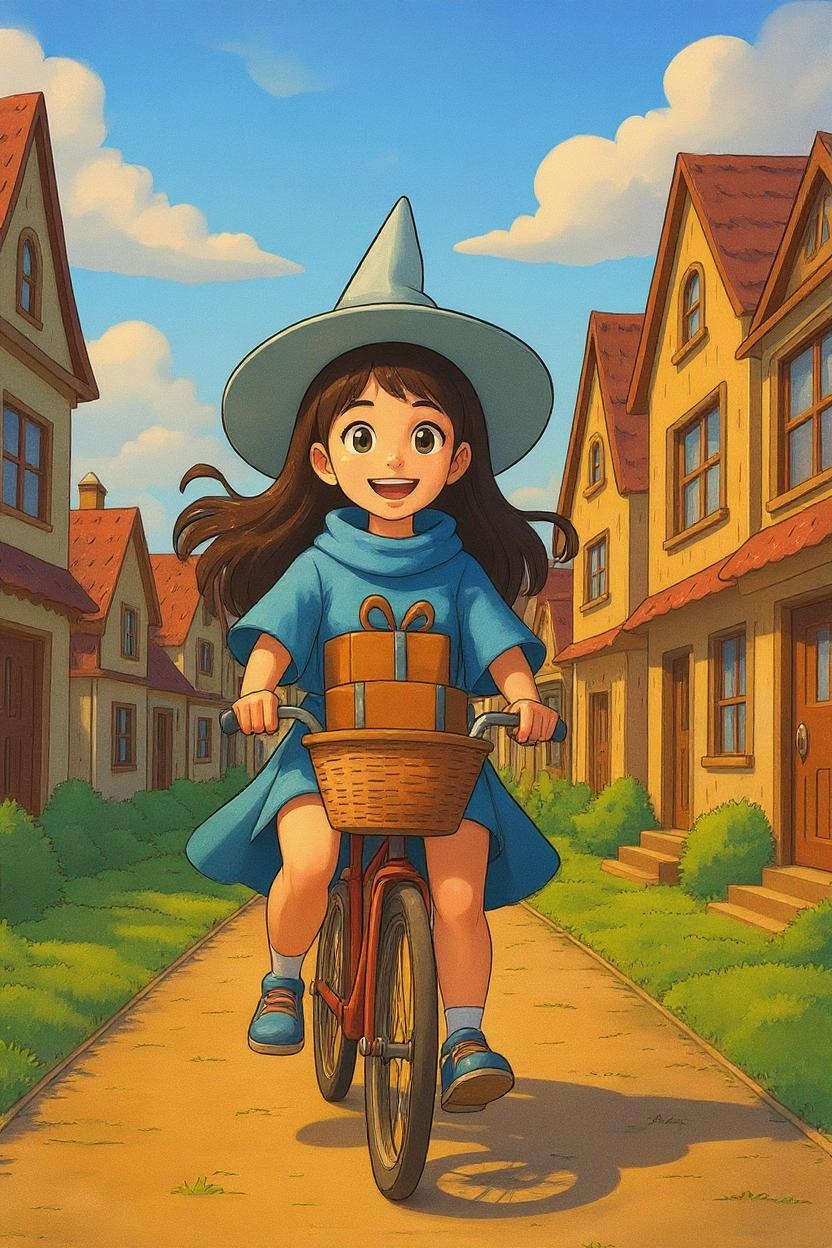Color any page in seconds with Magic Color
Transform your black and white coloring pages into beautifully colored artwork instantly. Magic Color applies realistic coloring styles while preserving the original line art structure.
What Magic Color does
Magic Color automatically fills in colors across your entire coloring page using smart technology. The system understands different artistic styles and applies appropriate colors, textures, and shading to create professional-looking results.
Use the colored results as inspiration for your own manual coloring or as finished artwork to enjoy and share!
Available coloring styles
Choose from seven distinct artistic styles to match your vision:
Digital Ink - Clean, flat digital coloring with sharp color boundaries. Perfect for modern, crisp looks.
Colored Pencils - Vibrant colors with subtle texture that mimics real colored pencil strokes. Adds warmth and depth.
Watercolor - Soft blending with artistic washes and gentle color bleeding effects. Creates dreamy, flowing appearances.
Marker - Bold, vibrant colors with smooth solid fills and slight streaking texture. Great for bright, energetic looks.
Crayons - Waxy texture with bold strokes and slightly uneven coloring. Perfect for playful, childlike charm.
Pastels - Soft, dreamy blended colors with gentle transitions. Creates light and airy artistic effects.
Cel Shading - Flat colors with distinct shadows in anime/manga style. Sharp color divisions with stylized lighting.
Getting better results
Magic Color works best with clear, well-defined line art. Images with distinct sections and good contrast produce the most accurate coloring.
How to color your pages
Magic Color is available in your editing suite alongside other enhancement features.
Hover over any coloring page from your library or gallery
Click the edit button to access the editing tools
Select the coloring tab from the available options
Choose your coloring style from the dropdown menu
Click start coloring to begin the process
Wait for processing - typically takes less than 30 seconds
Download your result when the coloring is complete
Your original coloring page remains unchanged. Each coloring session creates a new colored version you can save, share, or print.
Magic Color analyzes your line art and applies colors intelligently based on the style you selected. Different areas receive appropriate colors while maintaining the integrity of your original design.
Choosing the right style
Different styles work better for different types of images and purposes. Consider these factors and examples when selecting your coloring style.
Take this as a starter image:

Digital Ink provides clean, simple results without visual complexity that might be distracting during mindful coloring.

Crayons and Colored Pencils feel familiar and approachable. These styles remind viewers of traditional coloring experiences.
Crayons:

Colored Pencils:

Marker delivers bold, cheerful colors that appeal to younger audiences and create vibrant, energetic artwork.

Watercolor produces the most sophisticated, gallery-worthy results with natural color blending and artistic flair.

Cel Shading works perfectly for cartoon characters, anime-style artwork, or graphic design projects.

What makes coloring work better
Several factors influence the quality of your Magic Color results:
Image clarity and contrast
Sharp, high-contrast line art produces the best results. Magic Color needs clear boundaries to understand where different sections begin and end.
Blurry or low-resolution images may result in colors bleeding outside the lines or missing small details.
Line thickness and completeness
Thicker, more complete lines help Magic Color identify separate areas for coloring. Very thin or broken lines can confuse the color detection system.
If your original image has gaps in the lines, Magic Color might color beyond the intended boundaries.
Troubleshooting common issues
Colors appear in wrong areas
This usually happens when line art has gaps or unclear boundaries.
Solution: Try a different style that handles boundaries more forgivingly, like Watercolor or Pastels.
Missing color in some sections
Small or highly detailed areas sometimes don't get colored automatically.
Solution: Digital Ink and Marker styles are better at filling smaller spaces completely.
Colors look too intense or too pale
Different styles naturally produce different color intensities.
Solution: Pastels and Watercolor create softer looks, while Marker and Cel Shading produce bolder colors.
Processing takes longer than expected
Complex images with many details require more processing time.
Solution: Processing typically completes under 30 seconds. If it takes longer, try refreshing the page and starting again.
Tips for better results
Experiment with different styles
The same image can look completely different with various coloring styles. Try multiple approaches to discover which style best matches your vision.
Work with high-quality originals
Better input images produce better colored results. Use crisp, clear line art whenever possible.
Credit usage
Each color addition uses the credits shown in the tool. Plan your coloring sessions thoughtfully to maximize your credit value.
The credit cost remains the same regardless of image size or complexity, so feel free to color your most detailed artwork.
Getting help
If you're experiencing issues with Magic Color or have suggestions for improvement, send examples to help@colorbliss.com with:
Your original image
The style you selected
What you expected vs what you received
Any specific issues you encountered
We use this feedback to improve the system and create better guidance for all users.
Next steps
The best way to see it is to try it yourself! Try different styles with the same image to see how each one transforms your artwork.
Use the colored results as inspiration for your own manual coloring or as finished artwork to enjoy and share.
Each style offers unique character and appeal - there's no wrong choice, only different artistic expressions of your original design.

